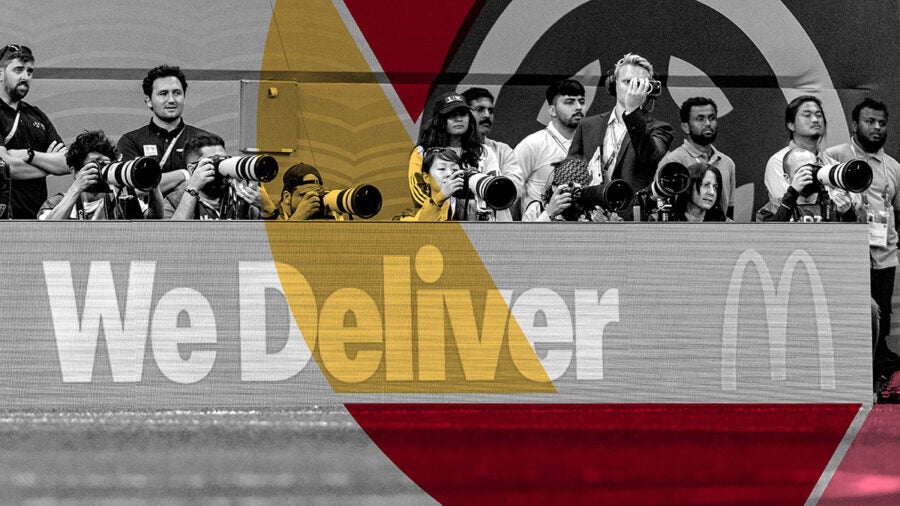
It’s unlikely 2022 will be remembered for just one thing when so much has happened. From war in Ukraine to the seven weeks of Liz Truss as prime minister, 40-year-high inflation to the first winter World Cup via the death of Queen Elizabeth II, it’s been a year few will forget.
Amid this, brands have sometimes struggled for relevance. How interesting is the launch of a marketing campaign or reveal of a new product amid such economic, political and societal upheaval?
That, then, has left brands searching for relevance. And all too often this year in rushing to join in they have missed the mark.
The death of the Queen is a prime example. Most businesses sought to pay their respects through social media posts or by closing on the day of the funeral. Yet many of the acts, while well-meaning, took things too far.
Take Ann Summers, which put its tribute to the Queen above links to purchase sex toys and lingerie. Or CrossFit UK, which added a ‘one-minute rest in silence’ to the ‘Queen Elizabeth II’ workout routine it shared on Instagram just hours after her death.
Playmobil dressed up one of its figures as the Queen and shared a picture on Twitter, while Center Parcs decided to shut its sites and force visitors to leave for one night on the day of the funeral – a move it quickly reversed.
Brand involvement with the World Cup
Most of these are amusing, if not ultimately all that damaging, responses to a major historical event. Yet there have been events this year with the ability to do some real brand damage.
One such event is this year’s FIFA World Cup. The decision to award it to Qatar has been controversial for several reasons, not least its treatment of migrant workers, stance on LGBTQ+ rights and attitude to climate change.
These are all brands happy to don a rainbow flag during Pride but which are not stepping up as allies when it matters
Some brands have ended their deals with FIFA, including Sony, Johnson & Johnson and Castrol. But most, including Adidas, Coca-Cola, Visa and Hyundai Motor Group, believe that the rewards of an association with the event outweigh the risks. The thinking goes that once the football starts, that will be the focus rather than the controversies.
The hope is brands can influence change. McDonald’s speaks of leaving a “positive legacy in Qatar”, though that does feel like wishful thinking. These are all brands happy to don a rainbow flag during Pride but which are not stepping up as allies when it matters.
Some have taken something of a stand. A number of the sponsors of individual teams, such as Denmark, Belgium and the Netherlands, are not making use of ticket allocations for the match or have pulled back on spend. But there are pitfalls here too. Brewdog came under fire for its anti-World Cup campaign (in part because of the double standard of offering to donate profits to fight human rights abuse while at the same time benefiting from the tournament by showing games in its pubs).
It’s a fine line to tread and brands will be monitoring the popular mood as the tournament progresses, in case they need to review their positions.
Patagonia shows how to make real change
One company that has had enough of empty corporate gestures is Patagonia. Setting a new example in environmental corporate leadership, its billionaire owner Yvon Chouinard gave away the company to a trust and non-profit designed to invest its profits in tackling climate change.
“As of now, Earth is our only shareholder,” the company said at the time. “ALL profits, in perpetuity, will go to our mission to ‘save our home planet’.”
This is what real brand purpose means. It is costing Patagonia money and requiring its boss to sacrifice an asset worth around £2.6bn. This is what it looks like to stand for something: it costs money to deliver it. Others should take note.

It’s unlikely 2022 will be remembered for just one thing when so much has happened. From war in Ukraine to the seven weeks of Liz Truss as prime minister, 40-year-high inflation to the first winter World Cup via the death of Queen Elizabeth II, it’s been a year few will forget.
Amid this, brands have sometimes struggled for relevance. How interesting is the launch of a marketing campaign or reveal of a new product amid such economic, political and societal upheaval?
That, then, has left brands searching for relevance. And all too often this year in rushing to join in they have missed the mark.
